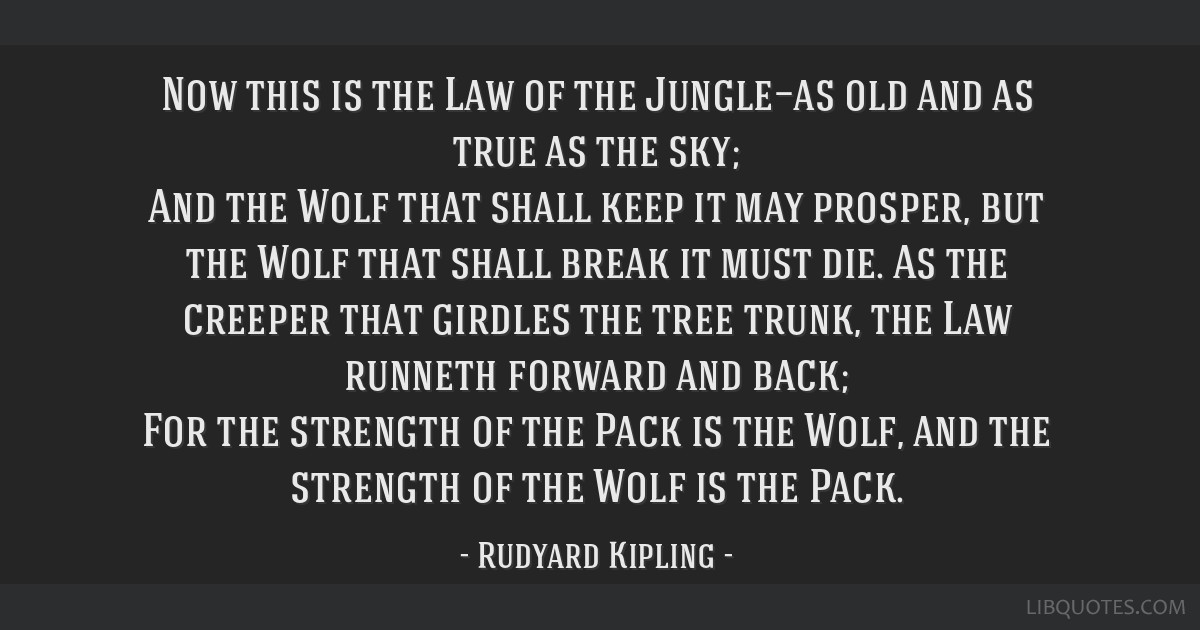

Ye may kill for yourselves, and your mates, and your cubs as they need and ye can īut kill not for pleasure of killing, and seven times never kill man. Lest ye frighten the deer from the crop and thy brothers go empty away. If ye kill before midnight be silent and wake not the woods with your bay, The council shall send him a message, and so he shall change it again. The lair of the wolf is his refuge, but where he has digged it too plain, Not even the head wolf may enter, not even the council may come. The lair of the wolf is his refuge, and where he has made him his home, Lest others take part in the quarrel and the pack is diminished by war. When ye fight with a wolf of the pack ye must fight him alone and afar, Lie down till the leaders have spoken it may be fair words shall prevail.

When pack meets with pack in the jungle, and neither will go from the trail, Keep peace with the lords of the jungle, the tiger, the panther, the bear Īnd trouble not Hathi the Silent, and mock not the boar in his lair. Remember the wolf is a hunter-go forth and get food of thy own. The jackal may follow the tiger, but, cub, when thy whiskers are grown, Wash daily from nose tip to tail tip drink deeply, but never too deep Īnd remember the night is for hunting and forget not the day is for sleep. "NOW this is the law of the jungle, as old and as true as the sky,Īnd the wolf that shall keep it may prosper, but the wolf that shall break it must die.Īs the creeper that girdles the tree trunk, the law runneth forward and back įor the strength of the pack is the wolf, and the strength of the wolf is the pack. However, this use of the term has been overtaken in popularity by the other interpretations above. The phrase was used in a poem by Rudyard Kipling to describe the obligations and behaviour of a wolf in a pack. It is also known as jungle law or frontier justice.

#Kipling law of the jungle code
"The Law Of The Jungle" was a law code used by wolves and other animals in the jungles of India.


 0 kommentar(er)
0 kommentar(er)
